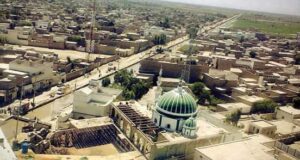More than 13 people reported to have been killed and countless injured so far in the wake of recent calamitous downpours and snowfall across the province. Many mud houses caved in, burying the inhabitants under the debris. Very unfortunate as it is, one of the many impacts of climate change, and perhaps the most disastrous in nature, is that it affects the human predictability of the weather patterns. In Balochistan’s case, the loss of individual lives does reflect the phenomenon and unpreparedness for an otherwise calamitous weather at individual level. Nevertheless, this unpreparedness was also observed at the institutional level in the beleaguered province, battered repeatedly by either man-made or natural disasters. This was very much evident during the recent heavy snowfall in Balochistan that left the main land communication lines of the province disrupted for more than 48 hours owing to the frost accumulated at the Quetta-Karachi, Quetta-Sibi, and Quetta-Chaman highways for more than 48 hours. The unpredictability of the weather patterns, owing to climate change, was even conceded by the provincial Home Minister Mir Sarfaraz Bugti who also holds the portfolio of the Provincial Disaster Management Authority (PDMA). In a response to a criticism by a fellow legislator, the worthy minister, at a crowded press conference at PDMA Directorate, said, ‘Those who were criticizing the performance of PDMA should mind it that such a heavy snowfall had not been witnessed since the last 25 years.’
The above statement of the provincial minister is reflective of the fact that owing to the lack of predictability of the weather patterns, PDMA never cared to complete home work for the kind of weather calamity in the province that brought the day to day life to a standstill. Moreover, later during overview meetings, the top brass of the provincial elected and non-elected executive did agree that the PDMA was lacking required heavy machinery and equipment to unblock the roads and restore communication lines to settlements trapped owing to heavy snowfall. Electricity remained disrupted in the snow-hit areas almost for more than 4 days and more than 18 hours in the provincial capital itself but could not be restored until the communication lines were cleared for the technical teams of QESCO to reach the faulty lines and repair them. Despite meager resources at hand, the relief activities continued in the snow-hit districts of the province once must concede. Collaboration was seen between the PDMA and the district administrative apparatus of all districts to assist calamity hit populace. During a briefing on Wednesday, the Director General PDMA revealed the statistics of casualties as well as that of the aid items dispatched to the marooned populace in the snow-hit districts so far.
Having said this, one must agree that whereas the predictability of individuals is weak that of an institution with a life span of more than a decade and half should not be too enough to perceive the impacts of climate change that can be in any form. To wit, floods, long spell of droughts, changed weather patterns, heavy unseasonal rains and snowfalls and many more fall the possible impacts of the climate change. The institutions should be able to observe the weather in their target areas and should remain prepared for any response to the calamitous move of nature. The floods of 2010 and in Naseerabad division and elsewhere in the province; and also in the subsequent years, should have been enough cues for the PDMA to remain watchful, attentive and ready to respond to any disasters in the province.
Finally, we suggest that the provincial government should ensure provision of all required heavy machinery, technology, expertise and to the PDMA so that it doesn’t lament of unpredictability and thereby unpreparedness in the offing. Secondly, it should also have its institutional structure at each district or at the very least at divisional headquarters of the province so that the disaster response is quicker than now. Since the PDMA deals with disasters that result in the wake of nature’s wrath, the government should also employ experts or at least coordinate with sister institutions to read and graph the weather patterns so that its preparedness is ordered accordingly. Moreover, luxury vehicles should not be priority with the Authority but the required equipment. Last but not the least, the torrential downpours, besides the havoc they wrecked, have also shown a gleaming line in the darkest of clouds of raising the underground water table and giving a sigh of relief to the populace of parched lands of Balochistan who are mainly dependent on tube wells for potable water and agricultural practices. Therefore, water storage dams should be priority with the government to make use of rain water and turn the disaster into opportunity for the agro-economy of Balochistan.
Published in The Balochistan Point on January 25, 2017
 Balochistan Point Voice of Nation
Balochistan Point Voice of Nation




